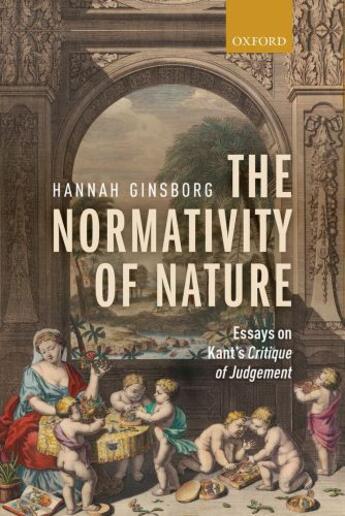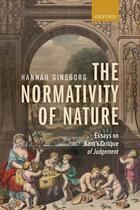-
Nombre de pages : (-)
-
Collection :
(-)
-
Genre :
(-)
-
Thème :
Non attribué
-
Prix littéraire(s) :
(-)
Résumé:
Most philosophers have taken the importance of Kant's Critique of Judgement to lie primarily in its contributions to aesthetics and to the philosophy of biology. Hannah Ginsborg, however, sees the Critique of Judgement as representing a central contribution to the understanding of human... Voir plus
Most philosophers have taken the importance of Kant's Critique of Judgement to lie primarily in its contributions to aesthetics and to the philosophy of biology. Hannah Ginsborg, however, sees the Critique of Judgement as representing a central contribution to the understanding of human cognition more generally. The fourteen essays collected here advance a common interpretive project: that of bringing out the philosophical significance of the notion of judgement which figures in the third Critique and showing its importance both to Kant's own theoretical philosophy and to contemporary views of human thought and cognition. To possess the capacity of judgment, on the interpretation presented here, is to respond to the world in a way which involves the recognition of one's responses as normatively appropriate to the objects which cause them. It is through this capacity that we are able not merely to respond discriminatively to objects, as animals do, but to bring them under concepts and so to make claims about them which can be true or false. The Critique of Judgement, on this reading, rejects the traditional dichotomy between the natural and the normative, taking nature itself both human nature and nature outside us to be comprehensible only in normative terms. The essays in this book develop this reading in its own right, and draw on it to address interpretive debates in Kant's aesthetics, theory of knowledge, and philosophy of biology. They also bring out its relevance to contemporary debates about concept-acquisition, the content of perception, and skepticism about rule-following and meaning.
Donner votre avis









